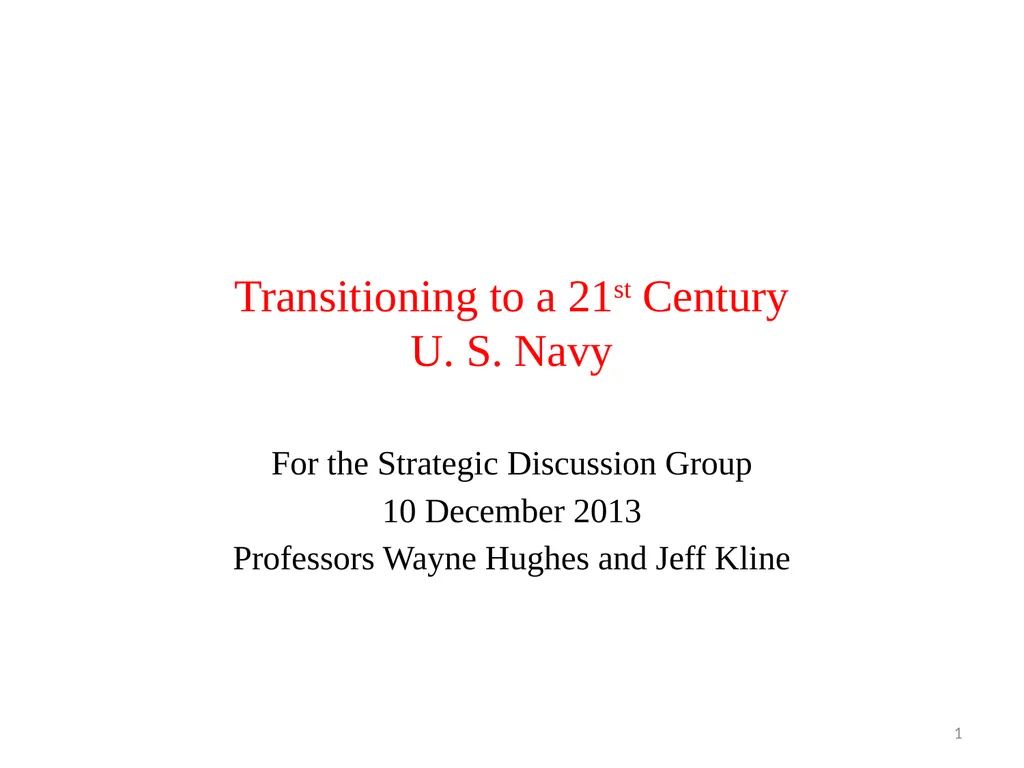
Author : aaron | Published Date : 2025-08-06
Description: Transitioning to a 21st Century U. S. Navy For the Strategic Discussion Group 10 December 2013 Professors Wayne Hughes and Jeff Kline 1 Background The New Navy Fighting Machine Study designed a fleet in 2009 to support an affordable bimodalDownload Presentation The PPT/PDF document "" is the property of its rightful owner. Permission is granted to download and print the materials on this website for personal, non-commercial use only, and to display it on your personal computer provided you do not modify the materials and that you retain all copyright notices contained in the materials. By downloading content from our website, you accept the terms of this agreement.
Here is the link to download the presentation.
"Transitioning to a 21st Century U. S. Navy For the"The content belongs to its owner. You may download and print it for personal use, without modification, and keep all copyright notices. By downloading, you agree to these terms.













